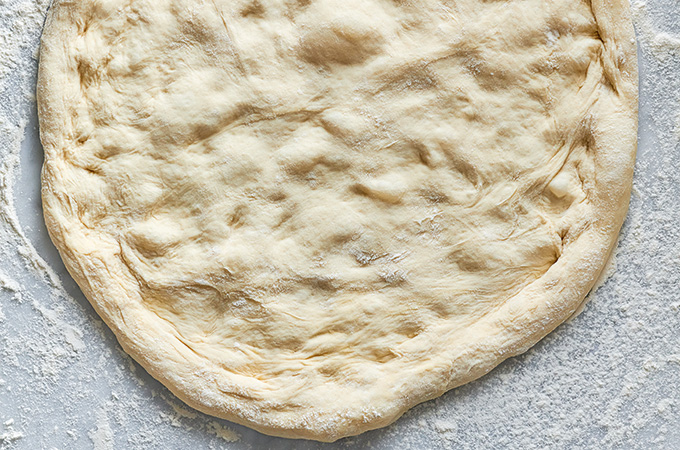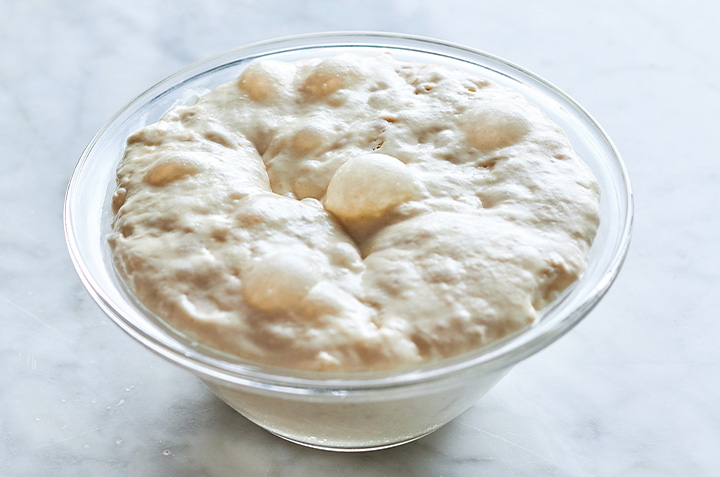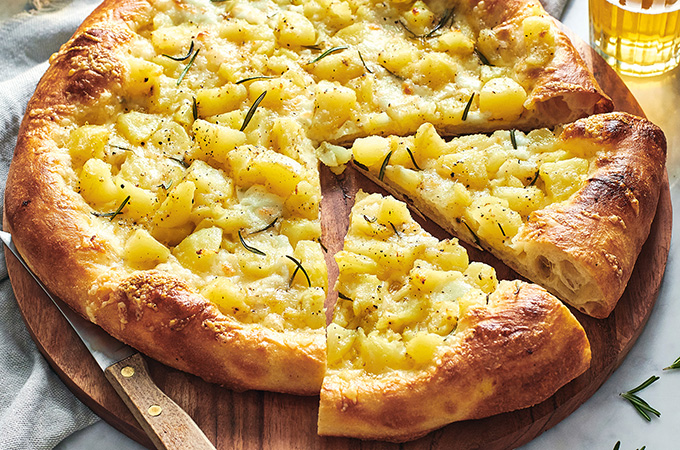Test Kitchen chef Nicolas uses this method for our potato and rosemary pizza recipe, with tasty results. We took the time to ask him a few questions about it. Read along!
What is poolish?
By definition, poolish can be compared to a starter (because you can use it similarly). But it is actually a pre-fermenter made of a mix of equal parts flour and water, as well as a bit of yeast, which can then be used in bread, pizza dough, ciabatta and English muffins.
Why use poolish?
The addition of poolish activates the fermentation process, which then forms many bubbles. That’s a good sign! It provides the dough with many alveoli, which means a more aerated dough that you don’t have to work too hard. It has great elasticity as well as a delicious taste with interesting yeasty aromas.
How to make it
Place the three ingredients listed below in a large bowl or container, then stir with a wooden spoon or a dough hook until combined:
- unbleached all-purpose flour
- room-temperature water
- instant yeast
Cover the bowl with a dish towel or lid and let it rest for two hours, or until it doubles in volume. Once it has reached the preferred volume, add it to pizza or bread dough.

HOMEMADE RECIPES
Fermented Pizza Dough (Poolish)
How to conserve it
We suggest adding it to your mother dough and using it immediately, or leaving it in an airtight container in the refrigerator, where it can ferment for two more days, if you prefer. Many pizzerias use this long-fermentation, low-temperature technique, which makes the dough even better, with added suppleness. Otherwise, once added to your dough, freeze it the same day in plastic wrap and then transfer it to a freezer bag. When ready to use, defrost it in the refrigerator and then let it temper for 30 minutes in a warm, humid spot.
Once you’ve made your first recipe using poolish, you’ll want to add it everywhere! Why not use it as a base to make your favourite pizza? If you’re looking for ideas, be sure to enhance one of these pizzas with poolish: grilled pizza, duck, fig and watercress pizza, ham and arugula pizza, or Alsatian pizza.


